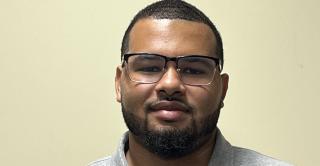
Central to Cracking the Case.
This is a for-credit undergraduate certificate program with courses taught by experts in police investigations. Students complete any 4 designated courses (12 credits): CRM 480 Death Investigations, CJ 581 Sexual Assault Investigations, CJ 582 Police Involved Shootings and Crime Scene Analysis, CJ 583 Interview and Interrogation, CJ 584 Expectation of Privacy, and CJ 585 Financial Crime Investigations.
Central’s Detective Certificate provides investigators with in-depth knowledge, skills, and theoretical perspectives that can assist in the application of their role as an investigator. Courses are designed for criminal investigators at all levels and ranks.
The Connecticut State Detective Methodology Program Advisory Board endorses this program and is an integral part of the development and ongoing assessment of classes. The classes in the program can be applied toward Central's BA in Criminology.
Program Features
- Starts every January and August
- 12-credit program
- Attend part-time
- Evening classes
- HyFlex format
- Endorsed by the Connecticut Advisory Board consisting of:
- State Attorney’s Office
- Local police chiefs
- Department Emergency Services and Public Protection
- Connecticut State Police Major Crime Unit
- Police Officer Standards and Training Council (POST)
- Connecticut Forensic Lab
- Office of the Chief Medical Examiner
- Local and State Police attending the courses may be eligible for POST credit
- All courses are taught by leading subject matter experts
- Scholarships are available through the Department of Criminology & Criminal Justice
- No GMAT/GRE required
Requirements for admission
New Students:
- Completion of the Basic Detective Certification course
- Must hold a B.A./B.S. from an accredited university
- Minimum GPA of 3.00 on a 4.00 scale. Applicants with a 2.70-2.99 may also be considered
Current Central students:
- Complete survey
- Interview with Program Coordinator
- GPA of 3.0 or better



